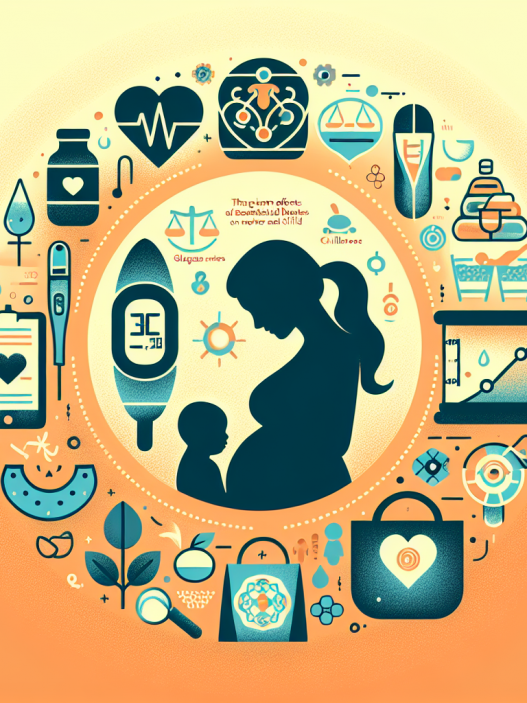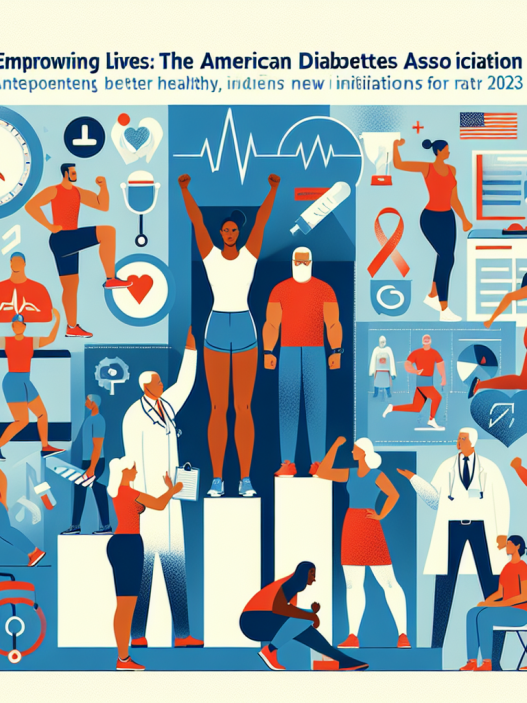[ad_1]
Gestational diabetes (GD) affects thousands of expectant mothers each year, raising concerns about both their health and that of their babies. While managing GD during pregnancy is critical, what happens after delivery is equally important. This article delves into the aftermath of gestational diabetes, exploring the physical, emotional, and lifestyle changes new mothers may experience, along with effective management strategies to ensure long-term health.
Understanding Gestational Diabetes After Birth
Gestational diabetes occurs when a woman who has never had diabetes develops high blood sugar levels during pregnancy. This condition often resolves after giving birth; however, the implications can last well beyond the delivery date. Post-delivery, make sure to monitor blood sugar levels as the body undergoes significant changes. Some women may notice their blood sugar levels return to normal shortly after childbirth, while others may continue to experience fluctuations.
Complications can arise even after the baby is born. For instance, women who had gestational diabetes are at a higher risk for developing type 2 diabetes later in life. Therefore, a proactive approach to health, including regular check-ups and blood sugar monitoring, is essential. Understanding your risks and maintaining a healthy lifestyle can significantly reduce such threats, enabling women to transition smoothly into motherhood.
Physical Health Implications After Delivery
The transition into motherhood can be overwhelming, especially for women who have had gestational diabetes. Understanding the immediate physical health implications can help in navigating this new chapter. After delivery, it is vital to have a follow-up screening for type 2 diabetes as soon as six weeks postpartum. This is crucial because women with a history of gestational diabetes have a one in three chance of developing type 2 diabetes within 5 to 10 years.
Additionally, maintaining a healthy diet remains essential even after childbirth. Just as during pregnancy, a well-balanced diet can assist in managing blood sugar levels and promoting overall recovery. Focus on nutrient-dense foods that are low in refined sugars and high in fiber, including fruits, vegetables, whole grains, and lean proteins. Adopting a healthy eating pattern can significantly decrease your risk of future health issues while supporting lactation and maternal wellness.
The Emotional Rollercoaster: Mental Health Considerations
Following the stresses of pregnancy with gestational diabetes, new mothers may also face emotional challenges after delivery. Hormonal changes, coupled with the pressures of caring for a newborn, can lead to feelings of anxiety and depression. The transition can be jarring, leaving mothers to juggle their physical recovery and the demands of postpartum life while staying vigilant about their health.
It’s essential to identify these feelings early and seek support when necessary. Connecting with other new mothers, joining support groups, or speaking with health professionals about mental health can provide valuable outlets for emotional release. Moreover, mindfulness practices, such as yoga or meditation, can help to combat stress and enhance the emotional well-being of new mothers navigating their postpartum journey.
Managing Lifestyle Changes: Diet and Exercise
Incorporating healthy lifestyle changes is crucial for women who have experienced gestational diabetes. Nutrition plays a significant role, and focusing on whole, nutritious foods will support both recovery and ongoing health. Aim to incorporate complex carbohydrates, healthy fats, and lean proteins into meals to keep blood sugar levels stable.
Exercise is another essential component for managing health post-delivery. Resuming physical activity not only helps manage weight but also lowers the risk of developing type 2 diabetes. Engaging in postpartum exercises, like walking, swimming, or low-impact aerobics, can provide an outlet for stress while promoting recovery and overall fitness. As always, it’s wise to consult with a healthcare provider for personalized exercise recommendations tailored to your postpartum needs.
Long-Term Health Surveillance: Monitoring and Check-ups
Long-term health monitoring cannot be overstated, especially for women who’ve had gestational diabetes. After the initial screening, healthcare providers typically recommend regular testing for diabetes every three years. Notably, early detection and preventive measures are vital for avoiding future complications. When empowered with knowledge about personal health, women can make choices that encourage a healthier lifestyle and sustain their well-being.
Regular check-ups should also encompass cardiovascular health, as women with a history of gestational diabetes have an increased risk of heart disease. Keeping track of blood pressure, cholesterol levels, and weight is key to addressing any potential health complications. By being proactive and informed, women can significantly improve their long-term health outcomes and eliminate health-related uncertainties.
Support Networks and Resources for New Mothers
Turning to support networks can make a considerable difference for women navigating postpartum life. Various online and in-person support groups offer a platform for sharing experiences and advice. These gatherings can serve as a lighthouse during times of uncertainty or emotional struggle, providing a much-needed sense of community.
Additionally, there are resources available through healthcare providers or community organizations to help maintain a healthy lifestyle. Dietary consultations and exercise classes specifically designed for new mothers can equip them with practical strategies to manage their health. Utilizing these resources can cultivate a supportive environment conducive to maintaining a healthy lifestyle despite the demands of new motherhood.
In conclusion, gestational diabetes can have diverse implications even after delivery. Awareness and proactive management can empower new mothers to transition smoothly into this new chapter while prioritizing their health. Understanding the importance of diet, exercise, emotional well-being, and long-term health surveillance can pave the way for a rewarding motherhood experience filled with vitality and health. Whether it involves maintaining regular check-ups or engaging with supportive communities, new mothers are encouraged to take an active role in shaping their postpartum journey, ensuring a healthier future for themselves and their little ones.
[ad_2]




















